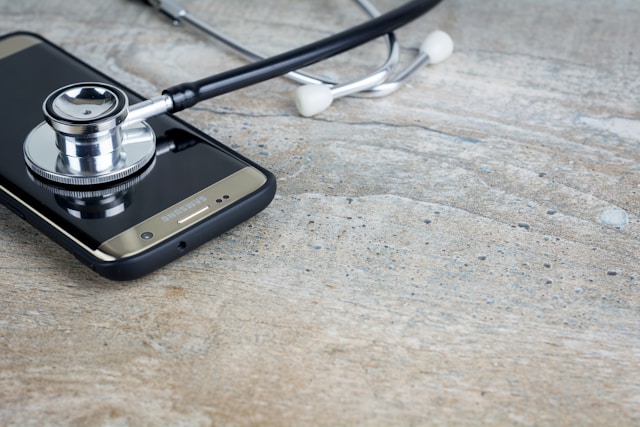Modern medicine has dramatically changed our approach to health and wellbeing. From advanced diagnostics to innovative treatments, the existence of contemporary medical practices has resulted in a significant improvement of both life expectancy and quality of life.
In this article, we will explore how modern medicine impacts healing and wellness, including its role in managing high blood pressure and other chronic conditions.
Advanced Diagnostics
Access to advanced diagnostic tools and techniques is one of the most important contributions and impacts of modern medicine. These technologies allow for the early detection of diseases, which is absolutely vital for their effective treatment and management.
Imaging technologies like MRIs, CT scans, and ultrasounds enable us to get a detailed view of the body’s interior, when therefore enables precise diagnoses that were once impossible.
Here are some examples:
Mammograms and other screening tests have allowed for the presence of cancer to be detected earlier which has led to higher survival rates. In a similar vein (pun definitely intended), advanced blood tests can detect biomarkers for various diseases, allowing for early intervention and better management of conditions like diabetes and heart disease.
Innovative Treatments
Modern medicine has introduced a number of innovative treatments that have transformed patient outcomes for the better. These treatments range from things like minimally invasive surgeries to targeted drug therapies that address specific cellular mechanisms of diseases.
Minimally Invasive Surgery
Minimally invasive surgical techniques, such as laparoscopic and robotic surgeries, have greatly reduced the time it takes to recover while also minimizing pain and lowering the risk of complications.
These advancements allow patients to return to their normal lives more quickly and experience fewer long-term effects.
Targeted Therapies
In oncology, targeted therapies have had a profound impact on cancer treatment. These drugs target specific molecules involved in cancer growth and progression, offering a more personalized and effective treatment option compared to traditional chemotherapy. Immunotherapy is another breakthrough that harnesses the body’s immune system to fight cancer, providing hope for patients who previously had untreatable cancers.
Managing Chronic Conditions
Modern medicine has significantly improved the management of chronic conditions as well. It has enhanced both longevity and quality of life for patients. Chronic diseases such as diabetes, asthma, and heart disease can now be managed effectively with the right medical interventions and lifestyle adjustments.
Managing High Blood Pressure
High blood pressure, or hypertension, is a common chronic condition that can lead to serious health complications if they are not managed properly.
Modern medicine offers a variety of treatments to manage high blood pressure, including medications such as ACE inhibitors, beta-blockers, and diuretics. These drugs will help control blood pressure levels therefore reducing the risk of a heart attack, stroke, or other cardiovascular diseases.
In addition to medications, modern medicine brings awareness to the importance of making lifestyle changes in an attempt to manage high blood pressure.
Regular physical activity, a balanced diet low in sodium, maintaining a healthy weight, and avoiding excessive alcohol intake are all recommended strategies. Healthcare providers often use a combination of medications and lifestyle modifications to achieve optimal blood pressure control.
Digital Health and Telemedicine
The advent of digital health technologies and telemedicine has amplified the impact that modern medicine has on healing and wellness. These innovations have made healthcare more accessible and convenient, especially for individuals in remote areas or those with mobility issues.
Telemedicine
Telemedicine is something that allows patients to consult with healthcare providers via video calls, phone calls, or online messaging platforms.
This convenience means patients can receive medical advice, follow-up care, and even prescriptions without needing to travel to a clinic or hospital. Telemedicine proved especially valuable during the COVID-19 pandemic, ensuring continuity of care while minimizing the risk of virus transmission.
Health Monitoring Devices
Wearable health monitoring devices, such as smartwatches and fitness trackers enable individuals to continuously track vital signs like heart rate, blood pressure, and oxygen levels.
These devices can alert users to potential health issues early on and for chronic disease patients, remote monitoring is the best way for their doctors to keep track of their condition in real-time and adjust treatments as necessary.
Preventive Medicine
Preventive medicine is another key area where modern practices have made an impact. The focus on preventing diseases before they occur allows doctors to reduce the overall burden of illness and therefore improve population health.
Vaccinations
Vaccinations have eradicated or significantly reduced the prevalence of many infectious diseases, such as polio, measles, and smallpox. Routine immunizations protect individuals and communities by preventing outbreaks and ensuring herd immunity.
Screening Programs
Regular health screenings for specific conditions like hypertension, diabetes, and certain cancers allow for early detection and therefore more effective treatment.
These screenings are crucial in managing high blood pressure and other chronic diseases, as they help identify risk factors and alert individuals that a change needs to be made early on.
Integrative Medicine and Wellness
Modern medicine is also paying more attention to the importance of having an integrative approach to health and wellness. Integrative medicine combines conventional medical treatments with complementary therapies, such as acupuncture, yoga, and herbal medicine, to promote holistic healing.
Mental Health and Wellbeing
Mental health is an incredibly important component of overall wellness. Modern medicine has advanced significantly in understanding and treating mental health conditions such as depression, anxiety, and bipolar disorder. Psychotherapy, medications, and lifestyle interventions are used in combination to support mental health.
Lifestyle Medicine
Lifestyle medicine focuses on preventive measures and healthy living practices to improve health outcomes. This approach encourages physical activity, nutritious eating, stress management, and sufficient sleep to enhance overall wellness and prevent chronic diseases.
The impact of modern medicine on healing and overall wellness is incredible. The impact of early detection of diseases and prevention of them has the ability to save people from potentially life-threatening conditions. As medical science continues to evolve, we can expect even greater advancements that will further improve health outcomes and quality of life for individuals worldwide.
